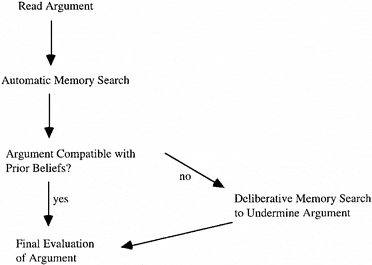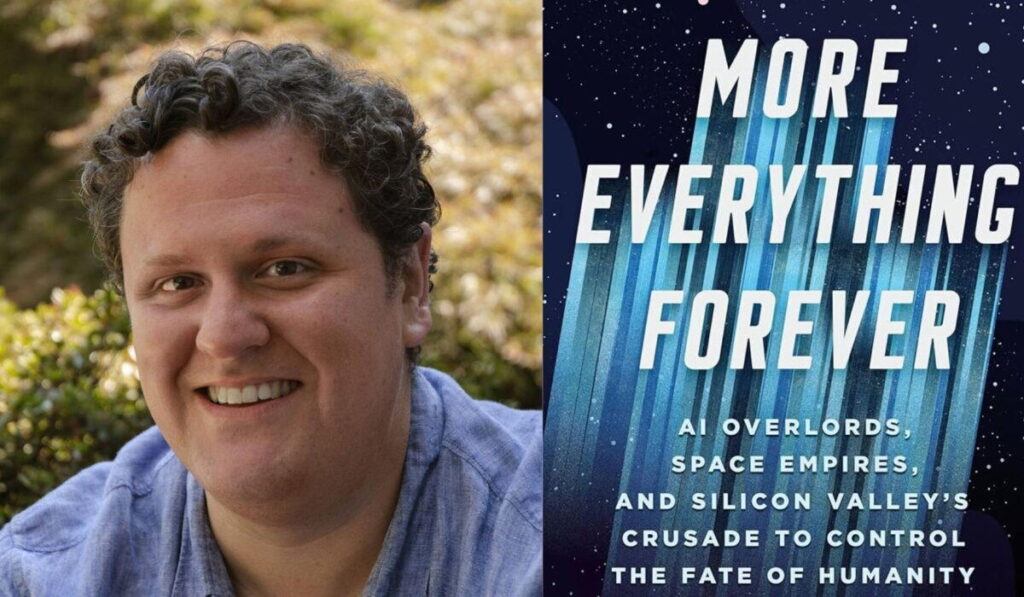Recently, I’ve become aware that the prominent climate science skeptic blogger Anthony Watts has been challenging a number of my posts. Maybe it’s because in my most recent book Unscientific America, I made a big deal about a site that attacks climate science, like his, winning a “Best Science Blog” award.
Anyways, Watts has gotten me back. Based upon my photo, he has taken to calling me a “kid blogger” (see here and here). And it’s true: I’m 33, obviously too young to be fooling around on the Internet.
The attention is flattering—but I’ve also grown intrigued by what happens on Watts’ blog when he criticizes something or someone and his many commenters then follow suit. Because it does indeed show what a dangerous place the Internet is for kids like me.
Watts commenters are an interesting bunch—in many ways, I’m very impressed with them. They are certainly highly energized to debunk climate science, and they bring a lot of intellectual abilities to the task.
At the same time, however, the debunking they conduct is overwhelmingly one-directional. By and large, these commenters are practicing “motivated skepticism” and showing a “disconfirmation bias” (see the image above, from this cool post) rather than conducting an open-ended informational search that could potentially end with their prior views and assumptions either being confirmed or disconfirmed.
As an example, let’s take Watts’ latest post, which is a response to my recent post on a study on astroturfing in the Journal of Business Ethics.
Watts suggests, in his post, that the researchers have done something unethical in their study. His headline is, “Researchers set up fake global warming websites to study response,” and in it he makes this charge:
So, they setup fake websites to gather fake data. Nice. Not only that, they “borrowed” content from other websites to use on these “fake” websites, apparently without citation or attribution, lest that taint the results. Sounds like a job for John Mashey and “Deep Climate” aka Dave Clarke. I’m sure they’ll get right on the case like they did with Wegman.
So, this study seems perfect for a business ethics journal. Glad to see that the study of opposite views fits in to this trend recently published by Security Week.
Watts is thus accusing the researchers of something pretty serious…and soon his commenters come in and proceed to bash the astroturfing study. They post and critique the abstract and various passages, they check up on the authors and their funding sources and their universities—and they reiterate Watts’ critique, sometimes in far harsher terms:
So, the lying liars set up fake webpages to push their lies about humans destroying the environment and got busted at it. Good. Lying liars who lie about humans destroying the environment deserve to be dragged into court for stealing content from real people’s webpages for their lie pages.
Eventually, someone posts a link to an online version of the full study. Then, at 6:49 pm, one commenter who seems to have actually read it realizes that the whole thrust of the critique is wrong. But even he only notes this in passing, by way of launching yet another critique:
I was originally concerned, as apparently Bernie was, as well, that the researchers had located and manipulated naive web surfers…. but apparently they recruited students who were told they were taking part in an study. That’s the good news. The Bad news is that the students were told they were taking part in an evaluation of web site designs: in other words, they knew that all of the web sites they were looking at were in fact fakes or prototypes. The seemingly anomalous conclusion that students evaluated the “astro-turf” websites as non-credible but nonetheless accepted the information indicates to me that the students were evaluating the information separately from web site design, which they were supposed to be evaluating. [Italics added]
Observing all of this, I contacted one of the authors of the study in question, Martin Martens of Vancouver Island University. Here was his (highly predictable) response to the charges above:
The fake web sites were not on-line in a way that permitted viewing by the general public. They only existed within the computer system used for the experiment. The only people who saw the web sites and answered the survey questions were the participants recruited for the study.
The study was also approved by an ethics committee (of course) and when it was over, Martens explained, the participants were debriefed about it and “provided information to remove any mistaken beliefs that might have developed as a result of reading the web sites, and an explanation as to why the procedures were necessary for the experiment.”
In short, this is very similar to many, many social science studies, including some true classics–like this paper on biased reasoning:
People who hold strong opinions on complex social issues are likely to examine relevant empirical evidence in a biased manner. They are apt to accept “confirming” evidence at face value while subjecting “disconfirming” evidence to critical evaluation, and as a result to draw undue support for their initial positions from mixed or random empirical findings. Thus, the result of exposing contending factions in a social dispute to an identical body of relevant empirical evidence may be not a narrowing of disagreement but rather an increase in polarization. To test these assumptions and predictions, subjects supporting and opposing capital punishment were exposed to two purported studies, one seemingly confirming and one seemingly disconfirming their existing beliefs about the deterrent efficacy of the death penalty…
Yup, “purported studies.” They weren’t real. They were created for the experiment–a classic experiment that revealed how people who start out from different ideological positions will read the same “evidence” vastly differently, rating a study that seems to agree with them as convincing and a study that doesn’t seem to agree with them as unconvincing—even when both studies are made up and have the same strengths and weaknesses!
I didn’t choose this study by accident, of course–I chose it because it helps to cast some 100 watt light on what Watts and his commenters are up to.
Some particular piece of evidence—in this case, the astroturfing study—was flagged as disagreeing with them. So like good motivated skeptics, they went on the attack and started criticizing. Along the way, a few caught on to the fact that the original criticism wasn’t even right…and kinda noticed…but they quickly moved on to new criticisms.
Given all this, any predictions about what they will say about this post?
But hey, go easy on me…I’m just a kid, after all.
Subscribe to our newsletter
Stay up to date with DeSmog news and alerts






